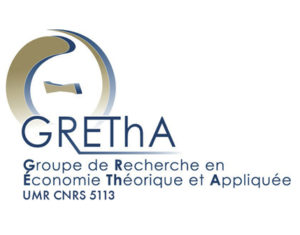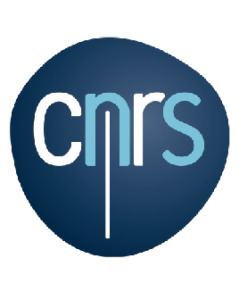PUBLICATIONS
- Debnath, A, Mazumder, R, Mazumder, A, Tyagi, PK, Singh, RK. Challenges and Progress of Orphan Drug Development for Rare Diseases. Curr Pharm Biotechnol. 2025; :. doi: 10.2174/0113892010371761250616112614. PubMed PMID:40600560 .
- Authier, S, Delatte, MS, Wakeford, A, Halpern, W, McMaster, O, Mellon, D et al.. Toxicology and safety pharmacology investigations on the nervous system: 2024 industry survey. J Pharmacol Toxicol Methods. 2025;135 :108378. doi: 10.1016/j.vascn.2025.108378. PubMed PMID:40562191 .
- Gholamalizadeh, H, Baradaran Rahimi, V, Askari, VR. Orphan G Protein-Coupled Receptors: A Novel Research Frontier in Autism and Associated Disorders. Arch Pharm (Weinheim). 2025;358 (6):e70018. doi: 10.1002/ardp.70018. PubMed PMID:40538218 .
- Sharma, M, Grover, M, Sharma, N, Shukla, VK, Suryavanshi, SJ. Comparative Review of Clinical Trial Regulations in Different Countries: Current Scenario and Future Prospect. Rev Recent Clin Trials. 2025; :. doi: 10.2174/0115748871365320250529125930. PubMed PMID:40511823 .
- Wang, J, Li, H, Liu, H. RD-LIVES: A Living Evidence Synthesis System for Rare Disease Treatment Efficacy and Safety. AMIA Jt Summits Transl Sci Proc. 2025;2025 :607-613. . PubMed PMID:40502246 PubMed Central PMC12150729.
- Lang, IM, Brenot, P, Bouvaist, H, Fadel, E, Jaïs, X, Madani, MM et al.. Balloon Pulmonary Angioplasty for Chronic Thromboembolic Pulmonary Hypertension: Results of an International Multicenter Prospective Registry. J Am Coll Cardiol. 2025;85 (23):2270-2284. doi: 10.1016/j.jacc.2025.04.021. PubMed PMID:40499982 .
- Romagnoli, A, Marcellusi, A, Lasala, R. [Analysis of the reimbursement times of antitumor drugs in Italy in relation to the clinical benefit expressed by the European Society for Medical Oncology (ESMO-MCBS).]. Recenti Prog Med. 2025;116 (6):371-379. doi: 10.1701/4518.45175. PubMed PMID:40491402 .
- Subramanian, N, Subramanian, A. Determinants of cancer drug prices in Germany and France: a multiple regression analysis. Expert Rev Pharmacoecon Outcomes Res. 2025; :1-8. doi: 10.1080/14737167.2025.2518140. PubMed PMID:40481741 .
- Climente Martí, M, Edo Solsona, MD, Abad Sazatornil, MR, Bachiller Cacho, MP, Fernández Espinola, S, Guijarro Martínez, P et al.. [Translated article] OrPhar-SEFH 2024-2027 Strategic Plan. Farm Hosp. 2025; :. doi: 10.1016/j.farma.2025.05.004. PubMed PMID:40480898 .
- Mukuku, O, Govender, K, Wembonyama, SO, Kiakuvue, YN. Magnitude and characteristics of unsuppressed HIV viral load in children and adolescents on antiretroviral therapy in sub-Saharan Africa: a systematic review and meta-analysis. Lancet HIV. 2025;12 (7):e506-e521. doi: 10.1016/S2352-3018(25)00039-6. PubMed PMID:40473447 .
- Goyal, PK, Sharma, V, Sangwan, K. Pharmacological Insights on USFDA-Approved Novel Drug Therapies in the Year 2023. Curr Drug Discov Technol. 2025; :. doi: 10.2174/0115701638379447250526075127. PubMed PMID:40464188 .
- Hahl, E, Kurko, T, Koskinen, H, Airaksinen, M, Sarnola, K. EMA approved orphan medicines since the implementation of the orphan legislation. Orphanet J Rare Dis. 2025;20 (1):266. doi: 10.1186/s13023-025-03756-7. PubMed PMID:40457478 PubMed Central PMC12131831.
- Suwattanapreeda, S, Hirunrassamee, S, Sooksriwong, C, Maluangnon, K, Chuachantra, T, Kuchaisit, K et al.. Unlocking access: a comprehensive analysis of medicines accessibility for rare diseases in Thailand. Orphanet J Rare Dis. 2025;20 (1):258. doi: 10.1186/s13023-025-03754-9. PubMed PMID:40437602 PubMed Central PMC12121248.
- Wen, X, Jin, G, Wu, C. Visual Research of Global Orphan Drug from a Bibliometric Perspective. Drug Des Devel Ther. 2025;19 :4201-4220. doi: 10.2147/DDDT.S506112. PubMed PMID:40416799 PubMed Central PMC12103199.
- Fanciulli, A, Caliò, B, Schmidt, S, Goebel, G, Leys, F, Radl, K et al.. MeDeMSA care study protocol: developing personalized best medical care with integrated mobile palliative and telemedicine support for individuals with multiple system atrophy. J Neural Transm (Vienna). 2025; :. doi: 10.1007/s00702-025-02933-z. PubMed PMID:40411588 .
- Hu, R, Liu, D, Sun, X, Yu, Z. New drugs approved by European medicines agency during 2024. Eur J Med Chem. 2025;294 :117761. doi: 10.1016/j.ejmech.2025.117761. PubMed PMID:40409054 .
- Ahmad, A, Simran, S, Kalokhe, VM, Musthafa, F, Gangawane, VS, Choudhary, KK et al.. Genetic renaissance: a cross-regional analysis of the approval landscape of authorised gene therapeutics in paediatrics, challenges and future prospects. J Community Genet. 2025; :. doi: 10.1007/s12687-025-00799-y. PubMed PMID:40397378 .
- Williamson, J, Hasan, SS, Gc, VS. Economic and developmental impacts of FDA designations: a systematic review and meta-analysis. Expert Rev Pharmacoecon Outcomes Res. 2025; :1-11. doi: 10.1080/14737167.2025.2507426. PubMed PMID:40387898 .
- Shanmugaraj, B, Ravi, K, Baladevan, K. Plant molecular farming: a promising frontier for orphan drug production. Biotechnol Lett. 2025;47 (3):56. doi: 10.1007/s10529-025-03596-2. PubMed PMID:40381123 .
- Abozaid, GM, Al-Omar, HA, Alrabiah, A, AlMuaither, A, McKnight, AJ. Towards a sustainable rare disease and orphan drug ecosystem in Saudi Arabia: policy insights from a multi-stakeholder workshop. Front Pharmacol. 2025;16 :1583477. doi: 10.3389/fphar.2025.1583477. PubMed PMID:40376269 PubMed Central PMC12078156.





